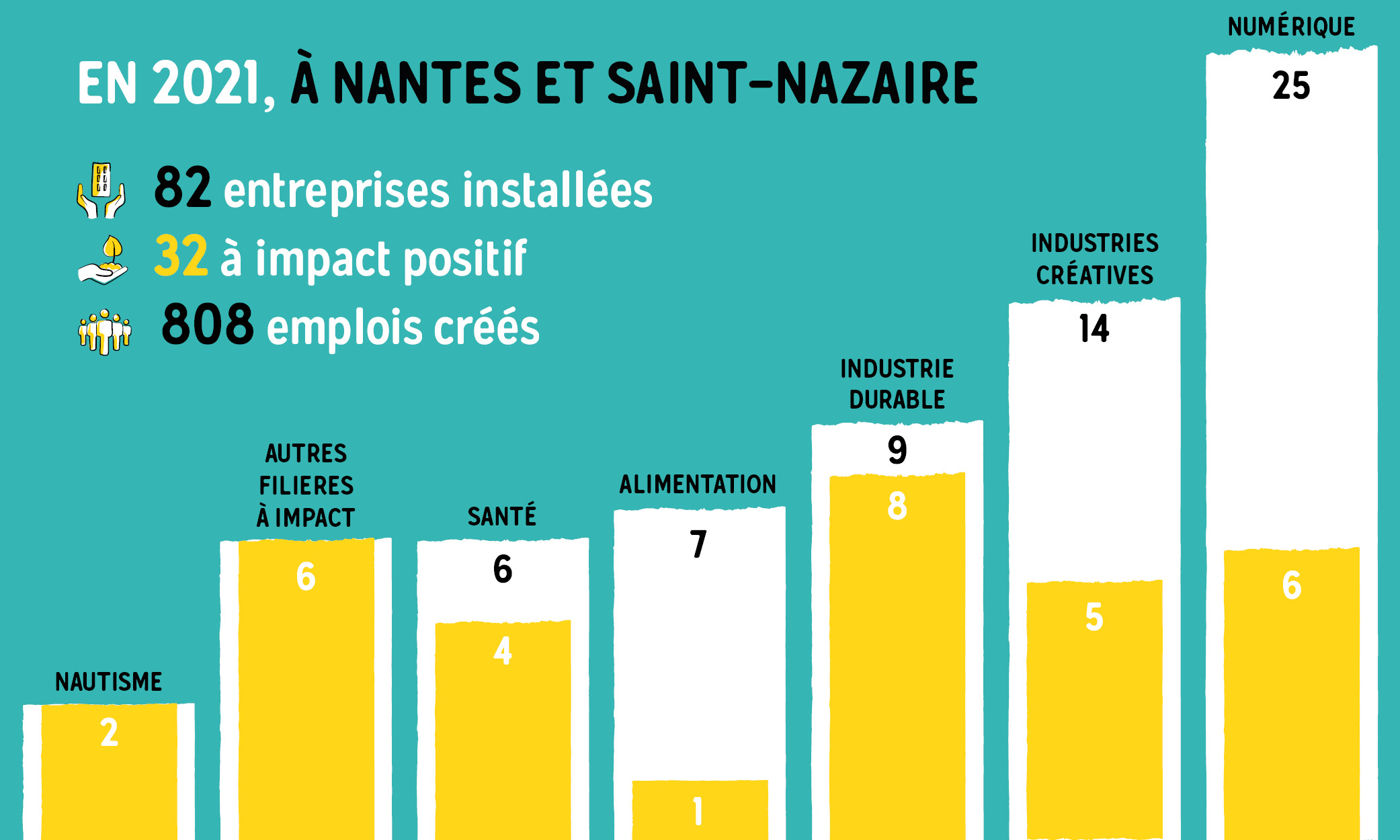32 positive-impact businesses have located to Nantes and Saint-Nazaire

A new strategy to attract and support businesses has brought the region two times more of those with a positive impact than in 2020.
It’s a well-established trend! As a result of its new prospecting campaigns, based on the region’s eco-responsible ambitions, the Nantes Saint-Nazaire Development Agency helped set up 32 positive-impact businesses in 2021. Which means the number of companies with a considerable impact on society and the environment doubled compared to 2020.
Industry and tech first
These businesses represent 40% of the total number of organisations that were accompanied in 2021 (vs 22% in 2020). They are mostly from strategic sectors of sustainable industry (8), digital (6), creative industries (5) and health (4). The companies Notus, wpd, Hyseas, EPI, Tenergie and YS, players in the new energies sector, have all come to the region. Plug&Boat, Hydroptère and VPLP Design have come to us from the nautical sector as well as Kickmaker, which is a high-tech design & industrialisation agency.
“The pattern we’re seeing of positive-impact businesses coming here to set up shop highlights the economic shift rooted in emerging industries, such as wind capture for transport, new energies or slow fashion. They are strong indicators of a region at the helm of the economic and ecological transitions”, confirms Nicolas Debon, Director of the Nantes Saint-Nazaire Development Agency.
Support in attracting talent
To support the growth of these new organisations, and also to address the local shortage of digital skills, the Nantes Saint-Nazaire Development Agency launched the ‘Un job à Nantes #tech’ initiative to boost recruitment in September 2021. Bringing together 36 companies, it set the stage for the first job dating in November 2021, which generated more than 250 virtual interviews.
‘Un job à Nantes #tech’ will be back in 2022 with some new actions, such as programmed events throughout the year, entirely dedicated to matching businesses with candidates. On the agenda:
- The region will participate in the Devoxx trade show in Paris, the first one devoted to developers in France (April 2022)
- A virtual job dating will take place in Nantes in September (more details coming soon)
Sometime in 2022, another similar initiative should emerge, only this time it will target the needs of businesses in one of the region’s other strategic sectors: health care.
Renewable energy, Green propulsions, Business, Saint-Nazaire, Positive impact
Business, Positive impact
Digital, Business
Nantes
Nantes
Nantes
@investnantesSN